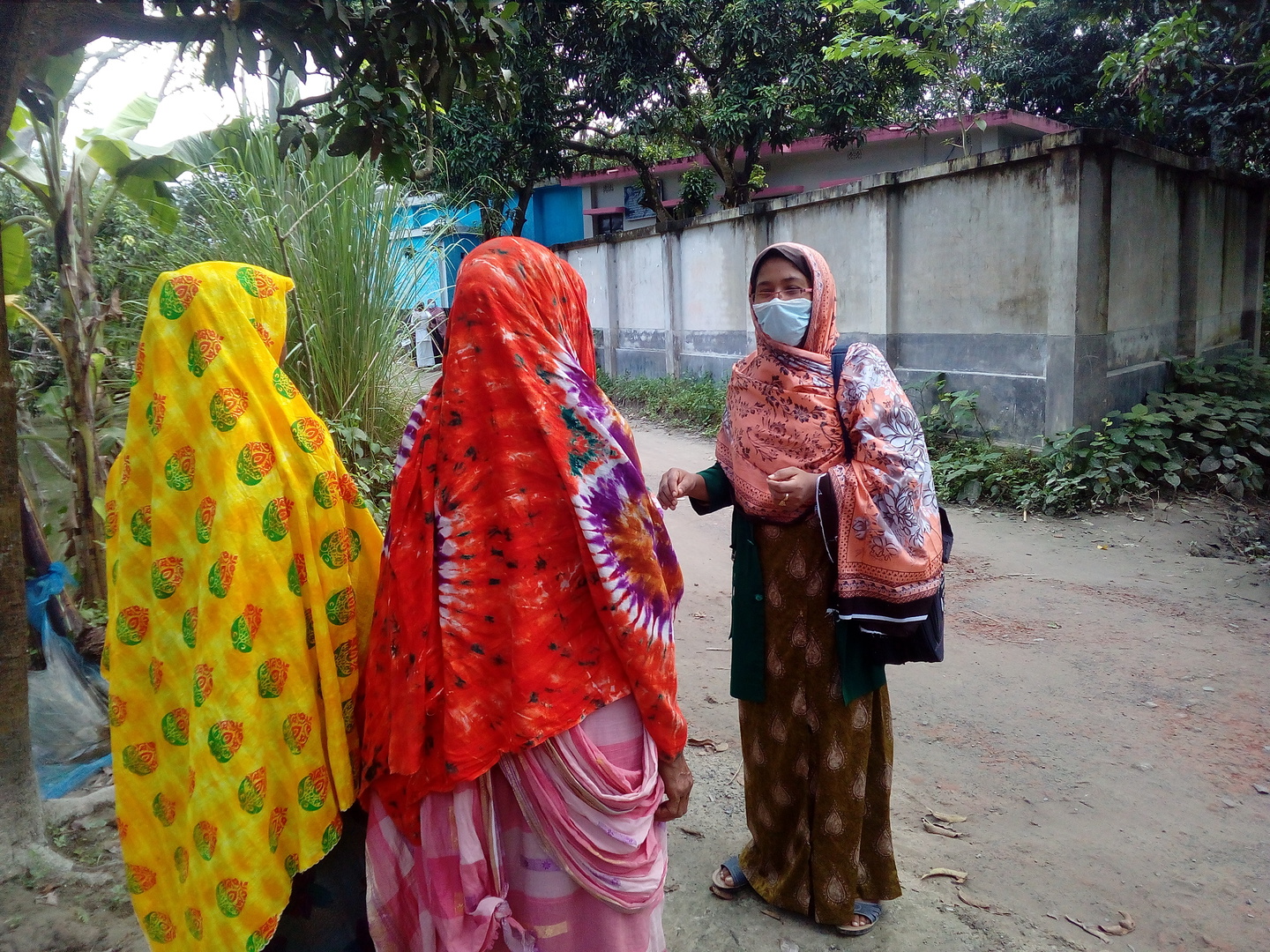All News
Nutrition International launches implementation research studies in India to strengthen nutrition outcomes for mothers, infants and young children
May 17, 2023
A maternal health worker in Bangladesh navigates COVID-19 protocols
Despite the additional challenges of COVID-19, this community health worker is continuing to support maternal health in her community.
Posted on April 12, 2021
Hafiza Khatoon sits in her clinic counselling expecting mothers. She advises on local dietary sources of iron and calcium, and provides tips for remembering to take iron and folic acid (IFA) supplements daily. She calmly answers queries and handles an emergency call between patients. Throughout the day, she remains friendly and focused, regardless of the challenges thrown her way. Her commitment to a patient’s health and wellbeing runs in the family.
As a child, Khatoon watched her father treat patients. She wanted to step into his shoes one day. Despite financial struggles and family responsibilities, she achieved her aspiration and worked her way to become a Community Healthcare Provider at Mariya Community Clinic in Rajshahi, Bangladesh.
Khatoon sees an average of 40 to 60 patients a day. She counsels women and their families to promote optimal nutrition during pregnancy and postpartum. A meticulous health worker, Khatoon has allocated Thursdays for conducting basic diagnostic tests for pregnant women, including screening for anaemia, and Sundays to see postpartum mothers. This way she can better follow up with women throughout their pregnancies and after giving birth.
“I don’t see anyone who does not wear a mask, which in turn encourages everyone to wear one.
— Hafiza Khatoon, Community Healthcare Provider
The COVID-19 pandemic has not deterred Khatoon from her daily duties. If anything, it’s reinforced the importance of her job. She works to see as many patients as possible while ensuring safety protocols. “I maintain social distancing while attending to my patients and spray disinfectants in the entire clinic after every counselling session. I don’t see anyone who does not wear a mask, which in turn encourages everyone to wear one,” says Khatoon.
In 2018, Khatoon attended a training conducted by Nutrition International to expand her knowledge and serve her patients better. She and other healthcare practitioners dived into the importance of monitoring nutrition-related indicators, reviewed the correct dosage and schedule of consumption of IFA tablets during pregnancy, the recommended number of antenatal visits with a skilled provider, and other maternal health and nutrition topics. She also received a pack of behaviour change communication materials, some of which she uses as helpful tools for nutrition counselling during antenatal consults.

Nutrition International continues to provide guidance to support health workers adapt to the COVID-19 context, working through the Institute of Public Health Nutrition (IPHN) in Bangladesh. This has helped to promote physical distancing, good hand hygiene, and reduce wait times. Nutrition International has also advocated to increase the number of IFA tablets being distributed at one time to limit the frequency of visits a pregnant woman needs to make to a clinic.
Khatoon has a lot of influence in her community and knows that good nutrition during and post pregnancy is critical for a child’s development. She isn’t letting COVID-19 hold her back from providing that care, and has delivered more than 500 babies to date. “It is a very rewarding experience each time bringing a new life into this world without any complications,” she says. “Family members of the newborns often invite us for the baby’s ceremonies at their homes which is very pleasant and talks of their faith in us.”
She’s setting the example for the family legacy to continue. “I want my son to grow up to become an established doctor and serve the society the way I am doing,” she says.